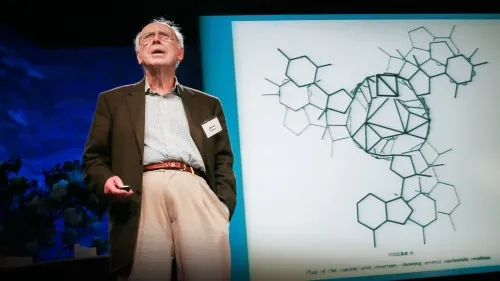JNCASR Introduces Innovative Therapy for Autism Self-Sufficiency

Synopsis
Key Takeaways
- New therapy from JNCASR aims to enhance self-sufficiency for autism patients.
- Focuses on epigenetic modifications, targeting the syngap gene.
- Research shows promising results in mice, enhancing learning and memory.
- First direct link between histone acetylation and autism established.
- Potential for significant advancements in ASD therapy.
New Delhi, April 4 (NationPress) Researchers from the Jawaharlal Nehru Centre for Advanced Scientific Research (JNCASR), an autonomous institute under the Department of Science and Technology (DST), have introduced a groundbreaking therapy aimed at assisting individuals with autism and intellectual disabilities to achieve greater self-sufficiency.
The existing treatments for autism spectrum disorder (ASD) and intellectual disabilities primarily focus on mitigating symptoms rather than addressing the fundamental phenotypes associated with neurodevelopmental disorders, particularly after the brain has matured.
In a study involving mice, the research team, led by Tapas K Kundu and James Clement from JNCASR, discovered a gene that is suppressed in the brains of individuals with autism.
“In mice with a mutated syngap gene—which mirrors the condition found in humans with a similar mutation associated with autism—the acetylation of DNA-associated proteins, known as histones, is inhibited within the brain,” explained the researchers. The epigenetic enzyme responsible for this acetylation appears to be KAT3B or p300.
Kundu’s team had previously identified an activator for this enzyme, TTK21.
By linking this activator with glucose-derived nanospheres (CSP-TTK21) and administering it to the Syngap1 autistic mice, the researchers successfully induced acetylation in the brain.
This research, recently published in the journal Aging Cell, revealed that CSP-TTK21 could restore neuronal function, enhance learning and memory, and facilitate neuronal rearrangements in Syngap1 mice, particularly when given after brain development is deemed complete (similar to adolescents in humans).
This study not only establishes a direct connection between histone acetylation and autism for the first time but also opens up exciting prospects for ASD therapies, according to the researchers.
The findings present a novel potential treatment by focusing on epigenetic changes in Syngap1-related intellectual disabilities and ASD, which could help restore deficits, enabling patients to live with less dependence on others.









